As new Florida immigration law takes effect, undocumented workers ask: Do I stay or go?
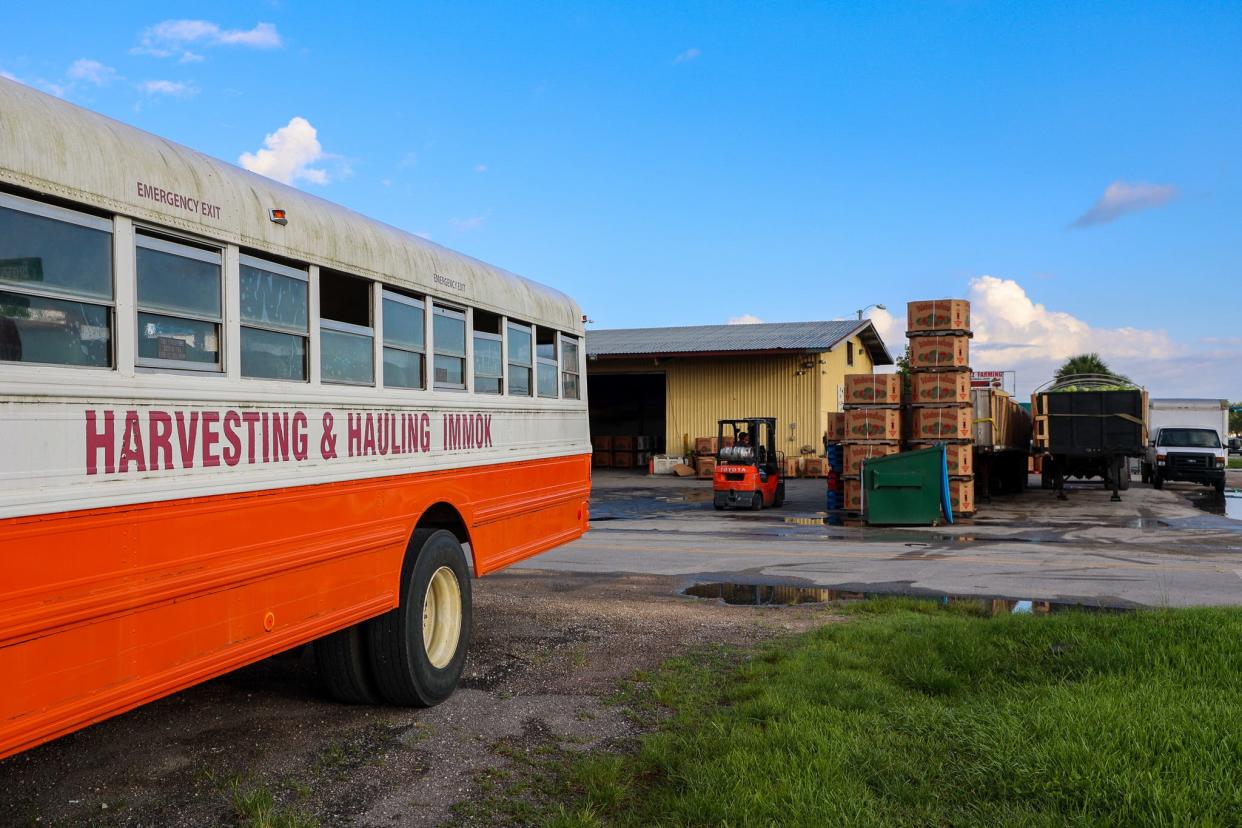
- Oops!Something went wrong.Please try again later.
IMMOKALEE, Fla. – It was still dark at 5 a.m. as workers with backpacks arrived on bicycles and foot to a parking lot next to Azteca market. Some ducked inside to buy drinks, or lunch, or work gloves, as a song by Mexican music icon Joan Sebastian played on the intercom.
Then, they waited.
Roosters crowed as vans and repainted school buses rolled in to haul the workers to farms or construction and landscaping jobs 45 minutes away in cities on Florida’s southwest Gulf Coast.
In Immokalee, where nearly 40% of residents are foreign-born, it’s a pre-dawn ritual that’s familiar to one 59-year-old woman from Mexico, who spent much of her adult life picking tomatoes, making a home and raising children.
But on this morning earlier in the week, the still undocumented mother and grandmother sat at the kitchen table in town, agonizing over a painful decision ahead: Whether to leave it all behind.
On Saturday, a Florida law known as Senate Bill 1718, backed by Republican Gov. Ron DeSantis, will go into effect. It will impose some of the nation’s toughest penalties and new restrictions on undocumented immigrants – which has led many to consider moving out of state.
The 59-year-old sighed as she weighed a seemingly impossible choice.
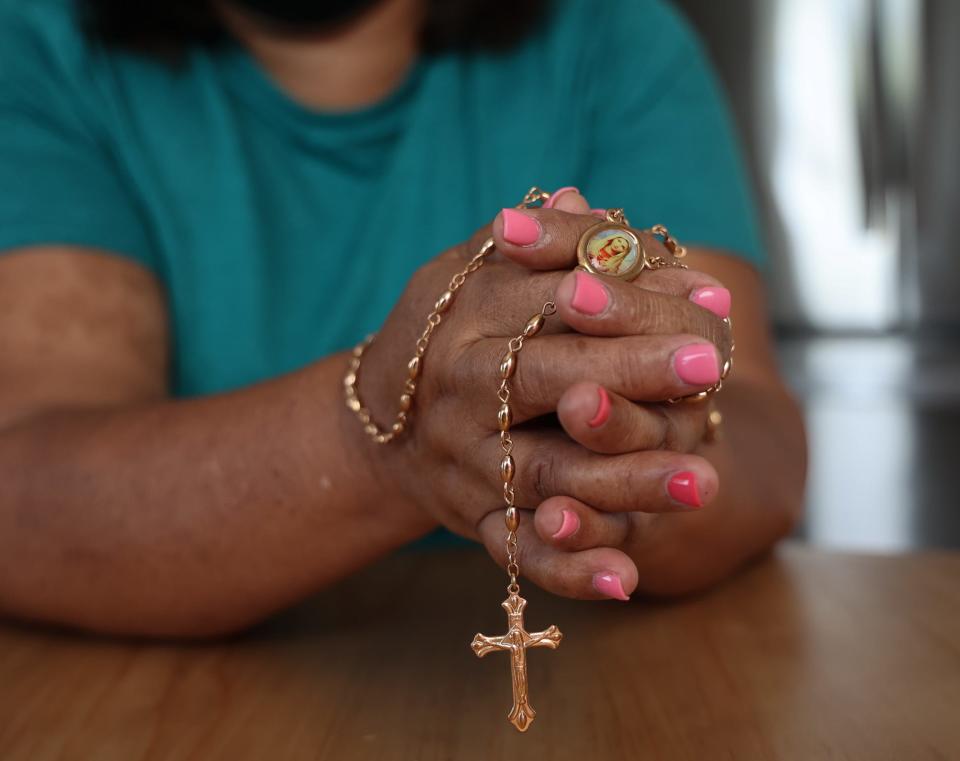
Staying could mean living with the fear of being asked about her status at a hospital, new struggles to find work or worries about criminal charges related to transporting undocumented migrants into Florida, she said.
But moving would mean leaving her citizen children and grandchildren, her longtime home and the family support that recently helped her battle cancer, she said.
She wiped away tears, shaking her head as her daughter sat next to her.
“You want to stay, but you also want to go,” said the woman, who spoke to USA TODAY on the condition of anonymity for fear of being targeted for deportation.
A new immigration law in Florida, July 1, 2023
Similar dilemmas have played out in recent weeks across a state that is home to an estimated 772,000 undocumented immigrants ahead of the law’s enactment.
The immigration law's provisions range widely, including third-degree felony charges for “knowingly” transporting people in the country illegally across state lines into Florida.
New employment requirements that will include random audits of businesses suspected of hiring illegal workers. And it makes it a felony to use false identity documents to get employment.
Hospitals will be required to ask patients about whether they are in the country legally. Driver’s licenses issued to non-citizens in other states would be barred from use in Florida. And it takes $12 million more from the state’s general fund for its migrant relocation program – part of an effort that has already drawn national scrutiny for shipping migrants to far-flung spots including Martha’s Vineyard and Sacramento.
The 59-year-old says she’s not sure if the new law is just meant to scare people, as some argue, or will be actively enforced. In some immigrant communities, rumors and conflicting information circulated on social media have exacerbated fears.
Critics worry it will lead to a labor shortage, potentially hobbling crop harvests, home construction and the tourism industry. Some business owners say they are already struggling to find workers.
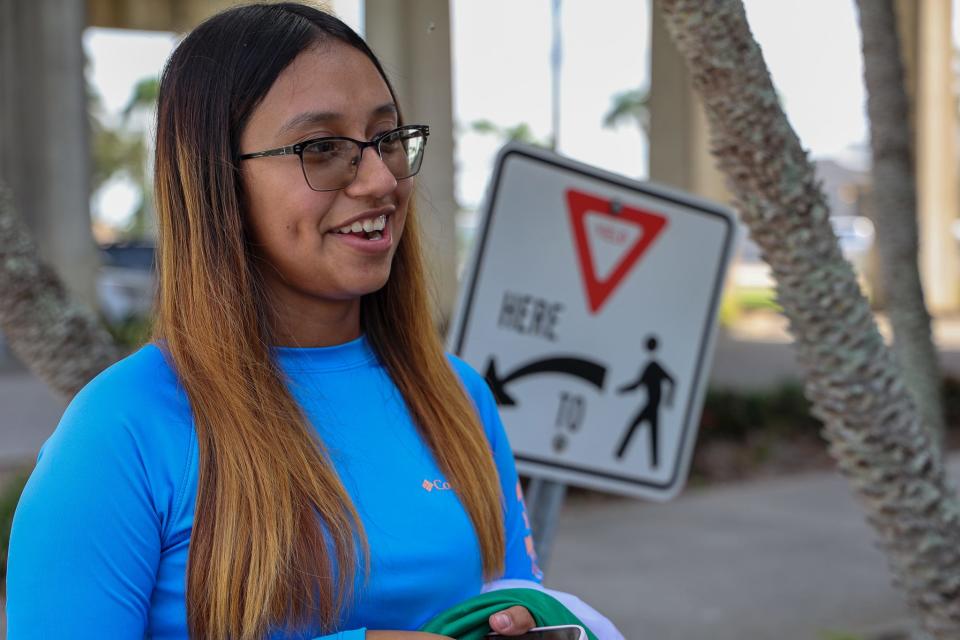
In Immokalee, the question of whether to stay or go is a conversation that’s been happening in homes, work sites and restaurants, some residents said.
“Everyone’s scared,” said Stephanie Murillo, 19, the daughter of former farmworkers in a town she said was still home to an unknown number of undocumented residents.
Waiting for the effect of SB 1718
Immokalee is a tight-knit community of nearly 25,000 residents, dotted with restaurants such as Juanita’s and Bibi’s Tropical, shops that wire money to other countries, produce-packing warehouses and a farmers market. It’s home to the Coalition of Immokalee Workers, a farmworker advocacy group and a Seminole casino.
About 28 percent of residents live in poverty, twice the state average. Most of the community’s foreign-born workers came from Mexico, Haiti and Central America.
Murillo, who is studying cosmetology, said it’s usually quieter in the summer when some people migrate north to pick blueberries, peppers and other produce. This time, though, she thinks many migrants will choose not to return. She’s noticed fewer people on the streets and emptier restaurants.
Immokalee social worker Maria Cardenas, 34, whose father recently retired after 49 years in farm work, said it’s a particularly stressful time for those whose children are citizens because they were born in the United States.
“Their lives are here, their children are here, they don't know how they can uproot their family,” she said. Nevertheless, she said, “We know a lot of families that have left.”
DeSantis, who is campaigning for the Republican presidential nomination, has said he supports ending automatic citizenship for any child born in the country – though this is a constitutional right – and favors allowing local authorities to enforce federal immigration laws.
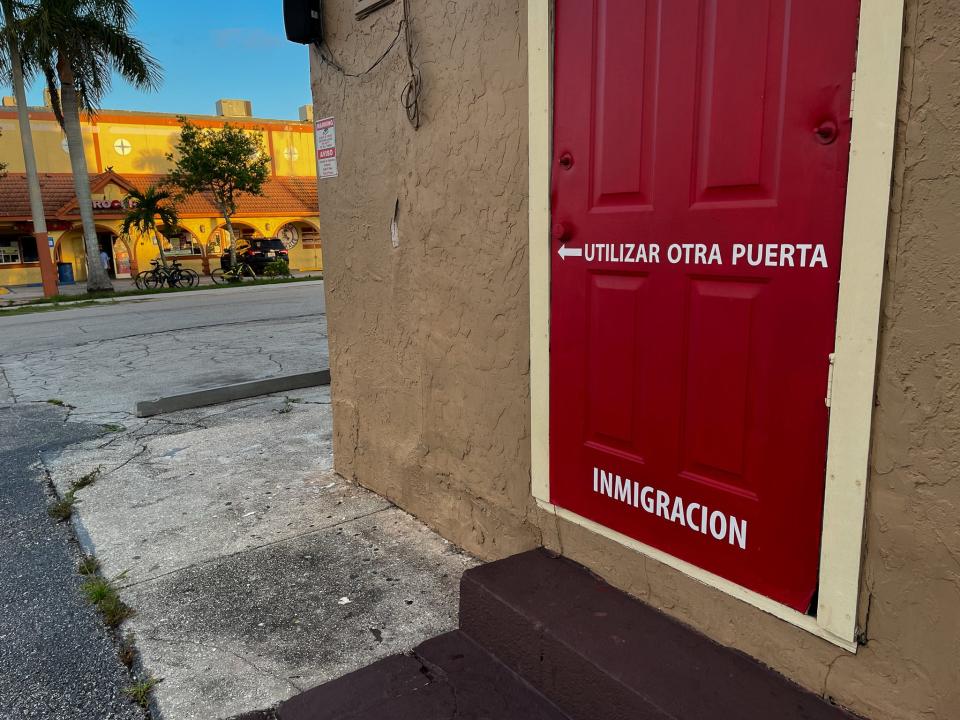
Eloise Ayala, an immigration attorney in town, said she’s consulted with clients and advised some to get their children's passports in case they get deported and complete power of attorney forms.
She said misinformation or rumors have left some vulnerable to scams and helped stoke fears among those not familiar with the law’s precise language.
Ayala said one client told her a neighbor had to leave because their landlord was worried he would get in trouble for housing them, even though that’s not part of the law.
Some Republican state lawmakers have tried to downplay its impact. At a public meeting in South Florida earlier this month, Republican state Rep. Alina Garcia said the law was “basically to scare people from coming into the state of Florida.”
Yet there are plenty of signs it’s scaring workers inside Florida. Some small construction contractors who work in Ft. Myers and sometimes hire workers from Immokalee said they had to delay projects because too few day laborers were showing or being supplied by labor subcontractors.
Irma Bautista, 37, who helps run a concrete business, said it’s frustrating because recent immigrants are often the only ones they can hire in a state where the unemployment rate in May was 2.6%.
“There’s a lot of work. Americans, come work (concrete) block. Let’s block all day in the sun!” said Bautista said. “I’ve seen American people who come and get a job with us. One day, and the next day they’re out.”
More: Here's what advocates are telling migrants ahead of July 1 Florida immigration crackdown
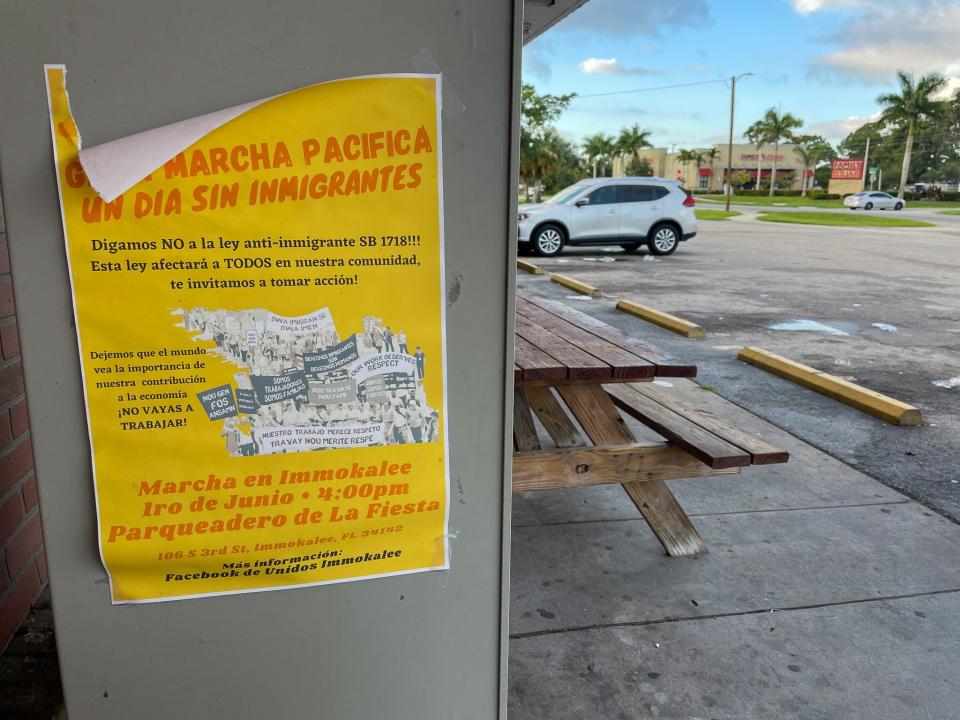
Away from the swirl of politics in the kitchen of her Immokalee home, on a street lined with mobile homes, the 59-year-old migrant mother said it was work and opportunity she sought more than three decades ago when she left her home in a rural area of Guanajuato, Mexico. She left behind relatives she hasn’t seen since then.
She still remembers the river she swam across on her way to the U.S., ice along its banks. The water left her numb in the January cold. She couldn’t imagine attempting the trip today. “It’s a very tough journey,” she said.
She made her way to Immokalee, where she knew others who had already migrated. Soon she was getting up in the dark to pick tomatoes.
She recalled earning about 50 cents a bucket on exhausting days that often stretched into the evening. When she started having kids, she would sometimes take them with her.
During summers, she would drive to North Carolina or other states to pick produce. The family would rent trailers or stay in hotels, she said, before returning to the Florida migrant farmworker town that became home.
She sometimes worried about her immigration status, she said – and at one point sought to obtain legal immigration status – but was unsuccessful.
In more recent years, she left farm work and recently battled cancer that is now in remission.
How the law might change her life – whether she leaves or stays – isn’t clear.
As the days ticked down toward the law’s enactment, she was praying with a rosary and lighting a candle, hoping for clarity in deciding whether to move north – to states where she has relatives – or hold her breath and wait to see what happens.
“Life was peaceful before,” she said. “And now it's full of worry."
Chris Kenning is a national correspondent. Reach him at ckenning@usatoday.com and on Twitter @chris_kenning.
This article originally appeared on USA TODAY: Migrant workers face dilemma under new immigration law in Florida

